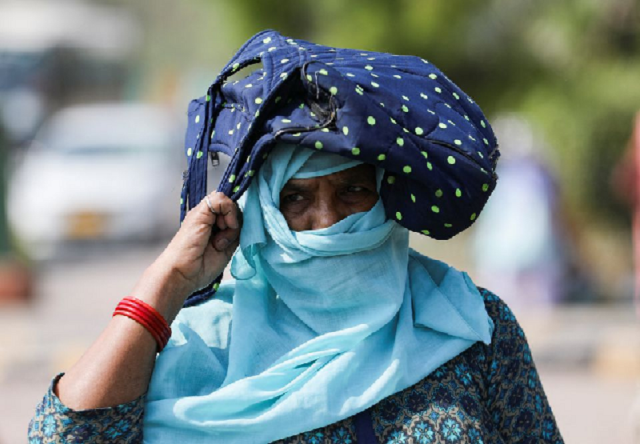India sweats over worst power cuts in six years during extreme heat
Parts of South Asia are facing an extreme heat wave as temperatures rose several degrees above normal

India is facing its worst electricity shortage in more than six years just as scorching temperatures force early closures of schools and send people indoors.
Extreme heat parched large swathes of South Asia this week after India's hottest March on record, prompting Prime Minister Narendra Modi to warn of rising fire risks as the country heats up too much too soon.
Parts of South Asia are facing an extreme heat wave that began in March as temperatures rose several degrees above normal.
Local authorities in the worst-hit states are struggling to juggle power cuts and growing pressure on health services.
In the capital New Delhi, temperatures have soared past 40 degrees Celsius (104 Fahrenheit) for several days and are forecast to linger around 44C until Sunday, with peak summer heat still to come before cooling monsoon rains arrive in June.
Maximum temperatures recorded in six districts in West Bengal were at least five degree Celsius above normal, weather officials said, with the lack of rains in state capital Kolkata adding to its worries.
People in Odisha state in the east set up stalls at prominent public places to offer water to those passing by. Its neighbour West Bengal has announced summer school breaks from next week, days ahead of schedule.
Health officials in the western state of Gujarat made arrangements to tackle a potential spike in patients.
"We have issued an advisory to hospitals to set up special wards for heat stroke and other heat-related diseases due to the rise in temperatures," Gujarat's health secretary Manoj Aggarwal told Reuters.
In the northwest, Rajasthan has scheduled four hours of power cuts for factories, making it at least the third state to disrupt industrial activity to manage surging power demand.
"In view of the present power crisis, .. it has been decided to impose scheduled cuts," a state utility said.
Industrial disruption and widespread power cuts are bad news for corporate India, as economic activity has just started to pick up after months of stagnation amid coronavirus lockdowns.
Power cuts are expected to worsen in the coming days as the heatwaves and a pickup in economic activity are seen increasing electricity demand at the fastest pace in nearly four decades.
The unprecedented heat puts millions of blue-collar workers, including construction and farm labourers and those working on factory shop floors, at great risk. Sunstrokes have claimed thousands of Indian lives over the years.
In addition to power cuts for factories, Rajasthan imposed four-hour power cuts for rural regions, exposing thousands of families in the desert state to extreme temperatures.



















COMMENTS
Comments are moderated and generally will be posted if they are on-topic and not abusive.
For more information, please see our Comments FAQ